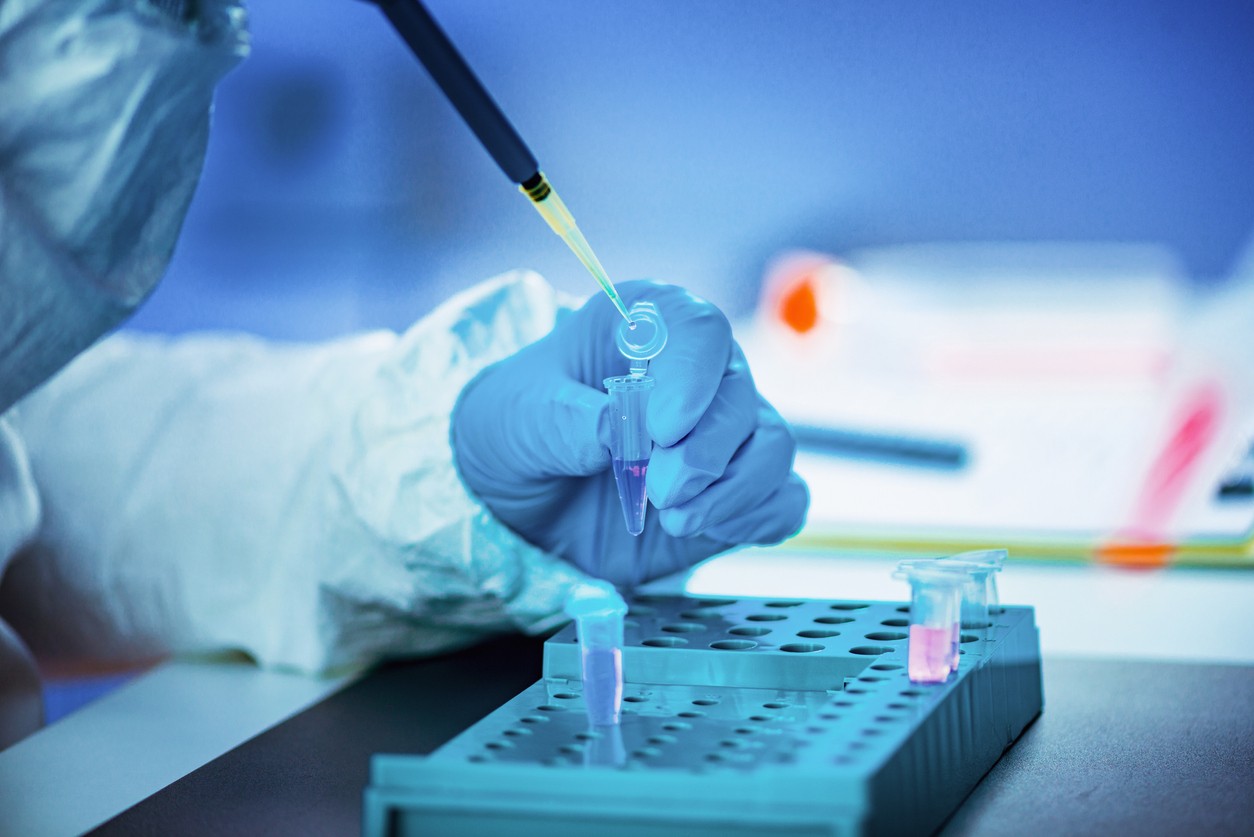No products in the cart
Tesamorelin Peptide: Weight Loss and Research in HIV

Tesamorelin is a peptide that researchers suggest holds importance in addressing cardiovascular disease in research models of HIV. Findings from studies propose that Tesamorelin peptide may be associated with a reduction in excess fat cell accumulation in models of HIV and lipodystrophy.
What is Tesamorelin Peptide?
Tesamorelin peptide, also known as (TH9507), is a synthetic growth hormone-releasing factor agonist that researchers suggest stimulates the production and release of endogenous growth hormone. Speculative information indicates that it consists of the 44 amino acids of Growth Hormone Releasing Hormone (GHRH) with the addition of a trans-3-hexenoic acid group. It is also speculated to be more potent and stable than GHRH and resistant to cleavage by the enzyme dipeptidyl aminopeptidase.
In animal experiments, it is suggested to have significantly reduced visceral adipose tissue (VAT). Researchers propose that Tesamorelin peptide was found to reduce triglycerides and total cholesterol in research models of lipodystrophy when introduced combinatorily with antiretroviral therapy in research models of HIV.
Structure of Tesamorelin Peptide
Sequence: Unk-Tyr-Ala-Asp-Ala-Ile-Phe-Thr-Asn-Ser-Tyr-Arg-Lys-Val-Leu-Gly-Gln-Leu-Ser-Ala-Arg-Lys-Leu-Leu-Gln-Asp-Ile-Met-Ser-Arg-Gln-Gln-Gly-Glu-Ser-Asn-Gln-Glu-Arg-Gly-Ala-Arg-Ala-Arg-Leu-NH2
Molecular Formula: C221H366N72O67S
Molecular weight: 5136 g/molS
Tesamorelin Peptide Mechanism of Action
Research daata suggests that Tesamorelin peptide binds and stimulates GHRF receptors with similar efficacy to endogenous GHRF. Growth hormone-releasing factor is a hypothalamic peptide speculated to act on the somatotropic cells of the pituitary gland to stimulate the synthesis and pulsatile release of endogenous growth hormone. This growth hormone is speculated to be both anabolic and lipolytic, exerting effects on various target cells.
Studies propose that the main mechanism of action of Tesamorelin is lipolysis, the breakdown of lipids and triglycerides. Generally stored in the for later energy use, high values for either may increase the risk of heart disease.
Case Study
A study involved Antiretroviral Therapy (ART) HIV research models with excess fat accumulation. These research models were given Tesamorelin or placebo each day. After 26 weeks, the group of research subjects receiving placebo were switched to Tesamorelin peptide for the next 26 weeks. The exposure to Tesamorelin in the experimental group was continued for another 26 weeks. Observations from the study suggest that exposure to Tesamorelin may decrease Visceral Adipose Tissue (VAT) and maintain the reduction for up to 52 weeks, possibly maintaining abdominal adipose tissue, improving lipids and body image, and without any significant changes in glucose parameters.
Disclaimer: The products mentioned are not intended for human or animal consumption. Research chemicals are intended solely for laboratory experimentation and/or in-vitro testing. Bodily introduction of any sort is strictly prohibited by law. All purchases are limited to licensed researchers and/or qualified professionals. All information shared in this article is for educational purposes only.
References
Falutz J, Mamputu JC, Potvin D, Moyle G, Soulban G, Loughrey H, Marsolais C, Turner R, Grinspoon S. Effects of tesamorelin (TH9507), a growth hormone-releasing factor analog, in human immunodeficiency virus-infected patients with excess abdominal fat: a pooled analysis of two multicenter, double-blind placebo-controlled phase 3 trials with safety extension data. J Clin Endocrinol Metab. 2010 Sep;95(9):4291-304
Dr. Usman (BSc, MBBS, MaRCP) completed his studies in medicine at the Royal College of Physicians, London. He is an avid researcher with more than 30 publications in internationally recognized peer-reviewed journals. Dr. Usman has worked as a researcher and a medical consultant for reputable pharmaceutical companies such as Johnson & Johnson and Sanofi.





